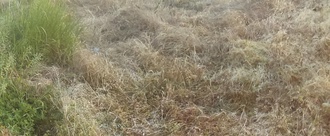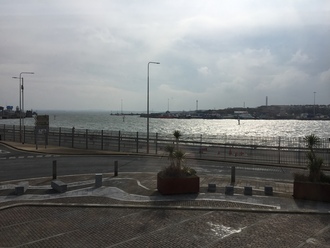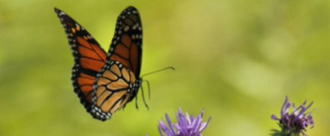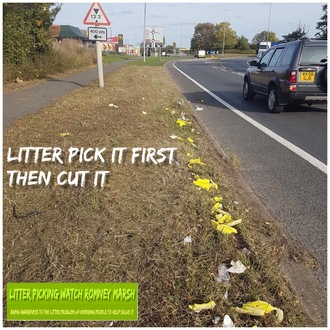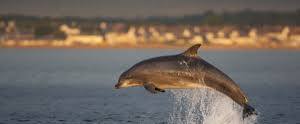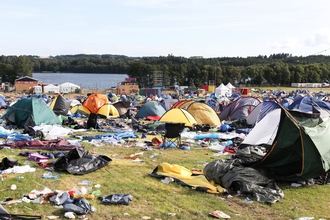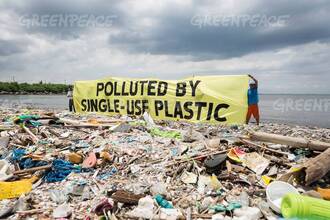-
Stop spraying weed killer in public areasThese chemicals have devastating effects on wildlife and there is a possible link with cancer. Teignbridge District Council have declared a Climate Emergency and part of this is the Ecological Emergency. Species are going extinct by the thousand each year.213 of 300 SignaturesCreated by Bee Helen
-
SAVE OUR HISTORIC HARBOUR - HOLYHEADHolyhead Harbours proposed port expansion by STENA, includes the RECLAMATION of the INNER HARBOUR, including destroying the HISTORIC CLASS II LISTED HARBOUR WALL. As well as destroying the history of Holyhead, the port and all its NOISE/POLLUTION will be even CLOSER to local RESIDENTS. We urge the government to rethink the proposals and expand the port further out to sea away from residential areas. The current levels of noise/pollution are already unpleasant to live with, DISTURBING SLEEP and the smell of DIESEL FUMES inside houses. The proposed plans for the new reclaimed land will be used to store Lorry Trailers, which will be very unsightly to the very important tourist trade, deeply affecting local businesses. PLEASE STOP THIS HAPPENING.465 of 500 SignaturesCreated by Port Expansion Community Group
-
Pesticide Free EdinburghEdinburgh City Council use pesticides for weed control on our streets, pavements, parks, playgrounds, around schools, cemeteries and green spaces. Pesticide use has multiple harmful effects on human and animal health and causes environmental pollution and degradation. The notorious chemical Glyphosate is used here in Edinburgh and has been linked to cancer in humans and animals (has recently been in the news with landmark lawsuits in the USA with thousands more awaiting trial). Direct contact with any pesticide can cause acute short term health problems such as respiratory tract irritation, allergic sensitisation, nausea/vomiting/diarrhoea, seizures, headache and loss of consciousness. Children are more at risk than adults due to their age and also their behaviour, for example, investigating nature, crawling and playing on grass and spending time in areas such as playgrounds and parks where pesticides are used. Dogs and cats are particularly vulnerable too due to their close proximity to the ground. Pesticides have also been shown to have a damaging effect on bee populations and other pollinators which are currently in steep decline and need all the help they can get. Many other towns and cities across the world have made the decision to go pesticide-free, using methods such as hot-foam, flame weeding, scraping, acetic acid solution and accepting a certain level of ‘weediness’. In the UK, Glastonbury, Lewes, Wadebridge and some London Boroughs are pesticide-free, proving that it can be done. The residents of Cherrytree in Balerno petitioned the council successfully to stop applying Glyphosate in their area because of the health risks of chemical exposure. We therefore call on Edinburgh City Council to put an end to all pesticide use in all of Edinburgh, using safe alternatives instead, protecting our health and the health of our environment.3,754 of 4,000 SignaturesCreated by Jessica Windsor
-
Pesticide Free BalernoEdinburgh City Council use pesticides for weed control on our streets, pavements, parks, playgrounds, around schools, cemeteries and green spaces. Pesticide use has multiple harmful effects on human and animal health and causes environmental pollution and degradation. The notorious chemical Glyphosate is used here in Edinburgh and has been linked to cancer in humans and animals (and has recently been in the news with landmark lawsuits in the USA with thousands more awaiting trial). Direct contact with any pesticide can cause acute short term health problems such as respiratory tract irritation, allergic sensitisation, nausea/vomiting/diarrhoea, seizures, headache and loss of consciousness. Children are more at risk than adults due to their age and also their behaviour, for example, investigating nature, crawling and playing on grass and spending time in areas such as playgrounds and parks where pesticides are used. Dogs and cats are particularly vulnerable too due to their close proximity to the ground. Pesticides have also been shown to have a damaging effect on bee populations and other pollinators which are currently in steep decline and need all the help they can get. Many other towns and cities across the world have made the decision to go pesticide-free, using methods such as hot-foam, flame weeding, scraping, acetic acid solution and accepting a certain level of ‘weediness’. In the UK, Glastonbury, Lewes, Wadebridge and some London Boroughs are pesticide-free, proving that it can be done. The residents of Cherrytree in Balerno petitioned the council successfully to stop applying Glyphosate in their area because of the health risks of chemical exposure. We therefore call on Edinburgh City Council to put an end to all pesticide use in all of Balerno, using safe alternatives instead, protecting our health and the health of our environment. Please also sign the petition to stop pesticide use across the whole of Edinburgh: https://you.38degrees.org.uk/petitions/pesticide-free-edinburgh589 of 600 SignaturesCreated by Jessica Windsor
-
Litter Pick Grass Verges First Before Cutting ThemMowing grass before litter picking creates a whole host of problems for the environment and us, One single piece of litter cut into minute pieces, often dangerous as in shards of aluminum, glass, plastic. Affecting wildlife habitat, infants play areas, parks, dog walking areas etc who all are vulnerable to injury by this senseless act. These pieces are often washed into storm drains where they are carried out to sea to return to our beaches as micro plastics etc, eaten by fish then by us, polluting everywhere as they go. Litter is a big enough problem without accelerating it. Visually it’s an eyesore to the street scene. Should the grass be cut as often with nature’s pollen collectors struggling to exist, they need all the help we can give them. So it makes sence to me cut grass less and before doing so clear the area of litter, it’s not rocket science373 of 400 SignaturesCreated by Eric Brown
-
Say NO to Stobart's and Six/56WBC's planning department together with Stobart's, Langtree and Panattoni (all multi-national property and logistics companies) are determined to forever destroy 346,000m sq of South Warrington's Green Belt land. That's equivalent to 54 Wembleys. It will mean easily 2000 additional vehicular movements PER HOUR 365/24/7 on our already overloaded roads, junctions and surrounding motorways. Air pollution in Warrington is one of the worst in the UK. It is THE worst for the most dangerous small particulates (PM2.5) in the whole of the UK (World Health Organisation Air Quality Database, 2018). This is a legacy that we MUST NOT PASS ON to our children and future generations. RSWF will use this petition to hand over when each application comes before the DMC. Please sign this petition to make your objection clear and share widely. Thank you.2,241 of 3,000 SignaturesCreated by Rethinking South Warrington's Future RSWF

-
Stop oil exploration in Cardigan Bay Marine SACCardigan bay Marine SAC is an important breeding and feeding area for bottle nose dolphins and harbour porpoises. An environmental impact assessment carried out by London based Orbis Energy has admitted that the proposed seismic activity would have detrimental consequences affecting all forms of wildlife including shellfish, marine mammals and seabirds as well as fish spawning grounds. Previous extensive seismic surveys have been conducted and have revealed no commercial quantities of hydrocarbons within the area and do not need to be repeated. If however there were any viable reserves discovered the extraction of such would cause irreparable damage to this sensitive marine area and the life it supports whilst making a mockery of the designation of a marine SAC. Equally at a time when Wales has declared a climate emergency to proceed with the extraction of more fossil fuels is sheer madness. If you have ever been fortunate enough to witness the bottlenose dolphins of Cardigan Bay you will understand the importance of protecting their precious habitat for future generations, if not I sincerely hope that you will be able to one day! Please sign and share this petition to ensure we can take it to the UK Government and overturn this reckless decision.7,547 of 8,000 SignaturesCreated by Steve Parkin
-
Stop Throwaway TentsAn estimated 250,000 tents are abandoned in the UK each summer, most of these at festivals. These tents are rarely reused and the materials they are made from are generally not recyclable, thus the great majority end up in landfill. At a time when we are facing an existential environmental crisis, when we are experiencing the earths sixth extinction event with around 5000 species disappearing each year. When the sea, air and earth is being increasingly poisoned through man made contaminants, and the population is growing to the extent that there are 225,000 extra people to support each day, we have to rapidly adapt to the situation and reduce our impact on the planet. If we want to save our civilisation and our beautiful planet then we have to stop using single use products. NOW!108 of 200 SignaturesCreated by Danny Ardeshir
-
Stop the throwaway culture of 'festival tents'More than 250,000 tents get left behind at UK festivals every year including Glastonbury and Reading and Leeds. The average tent is mostly made of plastic - which is equivalent to 8,750 straws or 250 pint cups. But some of the UK's biggest sports and leisure retailers are still advertising tents as 'festival tents,' which gives the impression that you only need to use them once. There is a myth that tents left behind when people leave the festival are collected and handed to charities. The reality is that the huge majority don't and will ultimately end up in landfill. With more and more festivals pledging to go plastic free and climate crisis on more and more people's minds, urgent action needs to be taken, with the help of the UK's biggest retailers.112,373 of 200,000 SignaturesCreated by Stephen Watts
-
Stop the St Philip's Marsh Gas PlantThe gas plant is 90 m from a school in an area which already has dangerous levels of air pollution. Bristol Council passed a climate emergency motion in November 2018 and has committed to becoming carbon neutral by 2030. By approving a power generation plant that burns fossil fuels the council is complicit with corporations that are driving the climate crisis. UK Parliament declared climate emergency on May 1st 2019.1,326 of 2,000 SignaturesCreated by LILY LEE
-
Liverpool & Merseyside: Declare Climate EmergencyIn declaring a climate emergency, they would follow the lead of both Parliament and more than fifty councils around the country. This declaration should include a pledge to make the city zero carbon by 2030, a commitment to green municipal energy generation and distribution, and ensure that there is properly democratic citizen representation in the development of all aspects of the city's climate justice programme. Bold climate action needs to be taken for the well-being of current and future generations, both locally and worldwide, and to ensure that the fragile balance in valuable ecosystems is maintained. Implementing this strategy could generate thousands of climate jobs in Merseyside. This call for action is made in the light of the UN’s Intergovernmental Panel on Climate Change report, published in October 2018, that concluded that humanity has 11 years for “ambitious action from national and sub-national authorities, civil society, the private sector, indigenous peoples and local communities” to deliver the “rapid and far reaching transitions in land, energy, industry, buildings, transport, and cities” needed to avoid tipping point. We are a group of Liverpool climate activists who want to work with all those on Merseyside that wish to see Climate Emergency declared and urgent implementation of these actions.1,896 of 2,000 SignaturesCreated by Clara Paillard
-
Tell Amazon.co.uk to stop using single use plastic packagingAmazon's recent use of plastic envelopes seems to an extraordinary decision to make in the wake of concerns about plastic in the oceans and in the landscape. Amazon seem utterly unconcerned by this and appear to have chosen to take the attitude that they are bigger than the environment and have stopped bothering to listen to customers who complain.168 of 200 SignaturesCreated by Stephen Thompson
Hello! We use cookies to improve your experience by providing insights into how the site is being used. Find out more.
